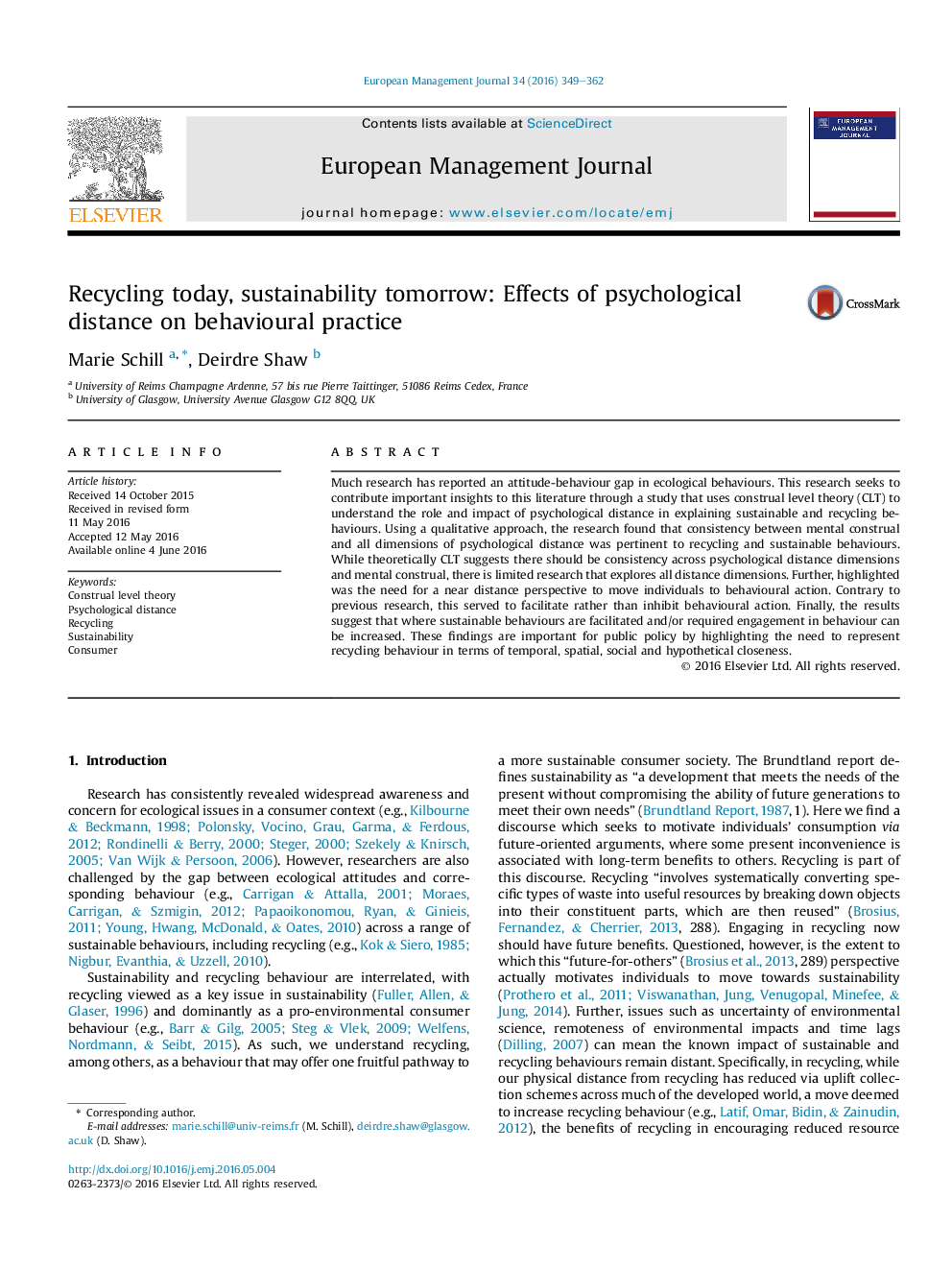| کد مقاله | کد نشریه | سال انتشار | مقاله انگلیسی | نسخه تمام متن |
|---|---|---|---|---|
| 1014715 | 1377684 | 2016 | 14 صفحه PDF | دانلود رایگان |
کلمات کلیدی
1. مقدمه
2. زمینه نظری
2.1 امروز بازیافت: درک فردا
2.2 اصلاح رفتار بازیافت و پایدار
جدول 1. خلاصه ای از بیانات مشارکت کنندگان
3. روش تحقیق
3.1. شرکت کنندگان و روش
3.2 تحلیل داده ها
جدول 2. بازیافت: CLT و فاصله روانی
جدول 3. پایداری: CLT و فاصله روانی
4. یافته ها
4.1 بازیافت در نزدیکی
4.2 پایداری: به صورت نزدیک محلی یا دور جهانی
4.2.1 سازگاری عینی
4.2.2 انتزاعی از پایداری
5. بحث و نتیجه گیری
5.1 پیامدهای نظری
شکل 1. یک فرایند شناخت از تفسیر ذهنی
5.2 پیامدهای مدیریتی و پژوهش های آینده
Much research has reported an attitude-behaviour gap in ecological behaviours. This research seeks to contribute important insights to this literature through a study that uses construal level theory (CLT) to understand the role and impact of psychological distance in explaining sustainable and recycling behaviours. Using a qualitative approach, the research found that consistency between mental construal and all dimensions of psychological distance was pertinent to recycling and sustainable behaviours. While theoretically CLT suggests there should be consistency across psychological distance dimensions and mental construal, there is limited research that explores all distance dimensions. Further, highlighted was the need for a near distance perspective to move individuals to behavioural action. Contrary to previous research, this served to facilitate rather than inhibit behavioural action. Finally, the results suggest that where sustainable behaviours are facilitated and/or required engagement in behaviour can be increased. These findings are important for public policy by highlighting the need to represent recycling behaviour in terms of temporal, spatial, social and hypothetical closeness.
Journal: European Management Journal - Volume 34, Issue 4, August 2016, Pages 349–362
